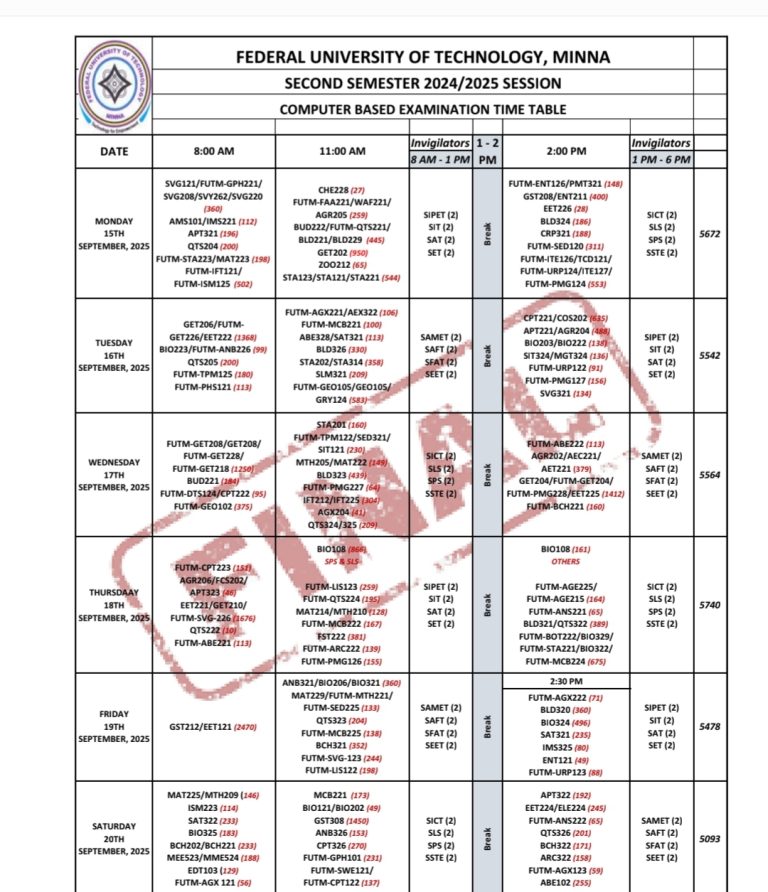The Nigerian Education Loan Fund (NELFUND) has once again sounded a strong warning to tertiary institutions across the country, urging them to fast-track the verification and approval of students’ loan applications. This call is coming at a time when many prospective beneficiaries are beginning to express frustration over the delays they face in accessing tuition and upkeep allowances promised under the Students Loan and Access Scheme (SLAS).
For many students, the loan is not just a financial cushion but the key to continuing their education without the fear of being sent home for unpaid school fees. Yet, despite the government’s commitment to make education financing easier, bottlenecks at the institutional level continue to create unnecessary setbacks.
Why Verification is Critical in the Loan Process
Before any loan is disbursed, students must go through a two-step approval process:
- NELFUND verification of the applicant’s details.
- Institutional verification by the student’s university, polytechnic, or college of education.
This second stage is where the bulk of the delays are happening. Schools are required to:
- Verify that the applicant is a bona fide student of the institution.
- Confirm the accuracy of academic and personal records provided.
- Approve the tuition amount that will be paid directly to the school.
- Upload and transmit this verified data back to NELFUND.
When schools fail to act promptly, students remain stuck at the pending stage, unable to receive funds that could pay for fees, accommodation, or basic living expenses.
The Current Challenge: Delays at the Institutional Level
NELFUND has made it clear that the major bottleneck is no longer on its side, but with institutions that are too slow in completing verification tasks. This lag is affecting thousands of students who applied in good faith and are waiting anxiously for disbursements.
For example:
- Some schools have yet to upload student records weeks after applications closed.
- Others have incomplete or outdated databases, making it difficult to cross-check details quickly.
- A number of institutions are still carrying out manual processes, instead of using fully digitized systems.
This situation has prompted NELFUND to urge schools to embrace technology, train staff, and dedicate special units to speed up verification.
Why Speed Matters: The Student Perspective
From the viewpoint of students, delayed verification has direct and painful consequences:
- Inability to register for courses due to unpaid fees.
- Risk of missing examinations or losing a semester.
- Psychological stress, as students worry about whether their applications will be honored.
- Extra financial burden, especially for those from low-income families who may have borrowed from friends or taken menial jobs to survive while waiting for disbursement.
In essence, every delay at the institutional level translates into weeks or months of hardship for students.
NELFUND’s Recent Measures to Improve Efficiency
To show its commitment, NELFUND has taken several steps, including:
- Relocating to a new headquarters: The agency now operates from its permanent office at House 12, Plot 103/104, Monrovia Street, Wuse II, Abuja, effective September 5, 2025. This move is expected to enhance administrative efficiency and improve accessibility for stakeholders.
- Push for digitization: NELFUND is working on integrating its loan application system directly with universities’ and polytechnics’ online portals. This means that once a student registers in school, their details can be automatically verified without delay.
- Partnership with lawmakers and stakeholders: The House of Representatives has also called for IT-based solutions to tackle inefficiency and prevent corruption in the student loan scheme.
These moves underscore the seriousness of NELFUND’s mission to deliver a transparent, fair, and efficient education financing system.
What Institutions Must Do
To prevent further delay, NELFUND is urging tertiary institutions to:
- Establish dedicated verification teams within their bursary and admissions units.
- Digitize student records to enable quicker cross-checks.
- Upload verified data promptly to the NELFUND system.
- Maintain constant communication with NELFUND to resolve discrepancies immediately.
- Educate students on proper application procedures to reduce errors that could delay approvals.
The Bigger Picture: Why Speeding Up Verification Matters for Nigeria
This issue goes beyond just student loans—it touches on the future of Nigeria’s education sector and workforce development. By delaying verification, institutions indirectly contribute to:
- Dropout rates, as some students may abandon their studies when financial aid is delayed.
- Reduced trust in government programmes, discouraging students from applying in the future.
- Economic setbacks, since education loans are meant to empower young Nigerians with skills to contribute to national development.
On the other hand, fast verification and timely disbursement will:
- Boost enrollment and retention rates in tertiary institutions.
- Encourage equal access to education, especially for students from disadvantaged backgrounds.
- Strengthen Nigeria’s human capital base, positioning the country for growth in technology, engineering, medicine, and other critical fields.






